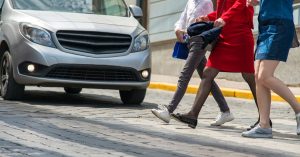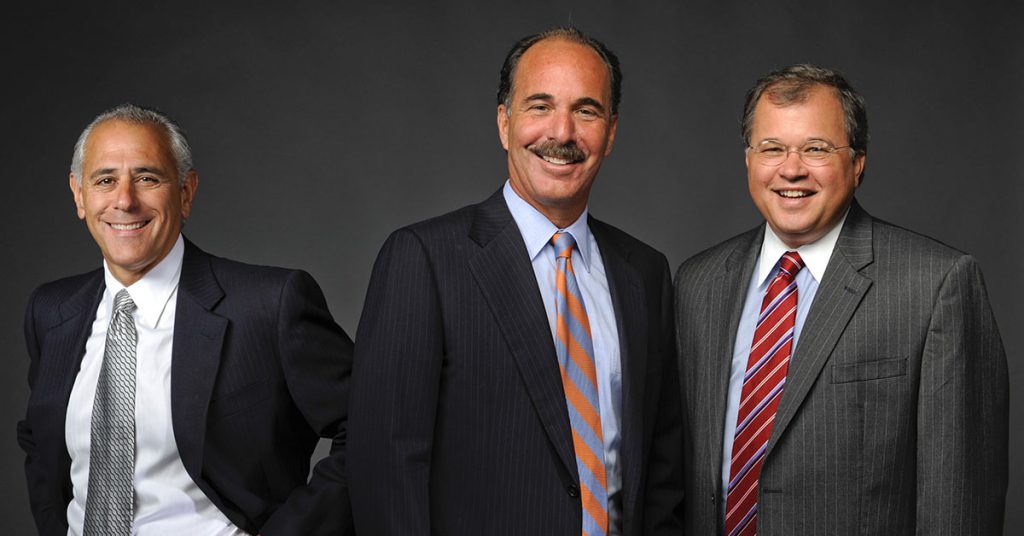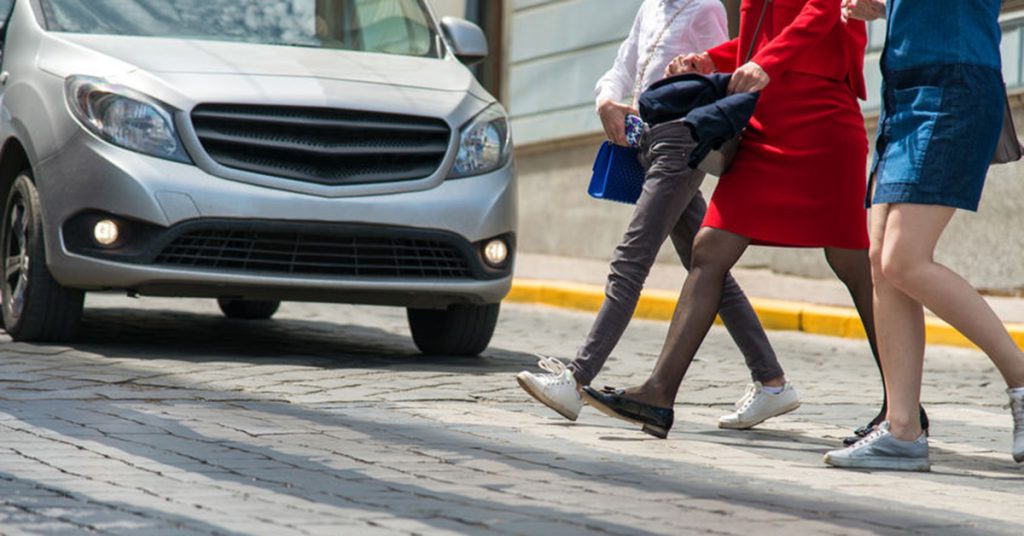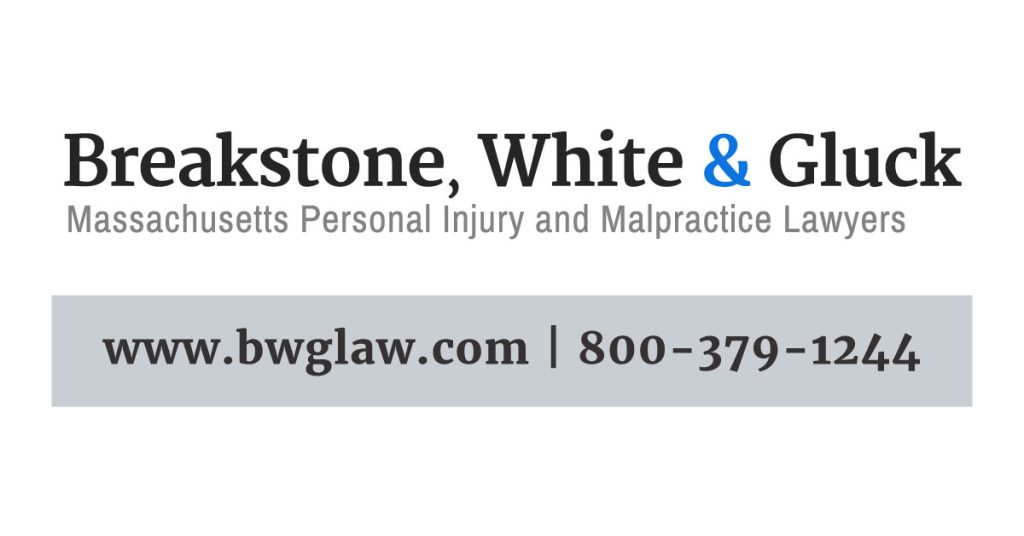Posts Tagged ‘Covid-19’
National Teen Driver Safety Week Offers Safety Reminders for Massachusetts Families
 Motor vehicle crashes are the leading cause of death for teens. Each year, National Teen Driver Safety Week highlights safety insights for families and teens. This year, the event runs from October 18-24th. We encourage you to follow the National Highway Traffic Safety Administration and Teen Driver Source for more information. Teen Driver Source is operated by the Center for Injury Research and Prevention at Children’s Hospital of Philadephia, which offers Facebook and Twitter feeds.
Motor vehicle crashes are the leading cause of death for teens. Each year, National Teen Driver Safety Week highlights safety insights for families and teens. This year, the event runs from October 18-24th. We encourage you to follow the National Highway Traffic Safety Administration and Teen Driver Source for more information. Teen Driver Source is operated by the Center for Injury Research and Prevention at Children’s Hospital of Philadephia, which offers Facebook and Twitter feeds.
According to the National Highway Traffic Safety Administration, the greatest dangers teen drivers face are: alcohol consumption, inconsistent or no seat belt use, distracted driving, speeding and driving with passengers in the vehicle. This year, COVID-19 has introduced a new concern. Teens are driving far less and risk losing core skills. This is where National Teen Driver Safety Week comes in as an important resource this year.
Driving Safety Contract. If you follow Teen Driver Safety Week, you may learn about teen driver contracts. You can also print this parent-teen driving contract from the Centers for Disease Control and Prevention (CDC). Make your own edits and ask your teen to sign as a condition for using your vehicle. Give your teen a copy of the document to file away and review. This is a good way to lay out expectations for your teens and what will happen if they violate the agreement.
Make Sure Teens Get Enough Driving Time. If teens are not driving as much during COVID-19, they risk falling behind on fundamental skills. To prevent this, encourage your teen to drive regularly. When you go out with your teen, split the driving responsibilities so you know they are logging at least some time behind the wheel and you can monitor their progress.
Hold back judgment and sharp comments if you see some of their skills have regressed. This may happen. Just help them get practice in where they need it. Take advantage of empty parking lots and slower times of the week. You can get them back on track.
Drive Around Town With Your Teen. When you can, walk and drive around your community with your teen, including during the morning and afternoon commutes. This gives your teen a preview of what may come when they pull out of the driveway alone. You may see more pedestrians and cyclists in areas. You may see parking changes and restaurants offering sidewalk service. Share observation with your teens and try to make helpful suggestions to help them drive safely and avoid car accidents.
Stress the Importance of Slowing Down. Speed is a factor in nearly 30 percent of all fatal crashes involving teen drivers, according to AAA. Teens often have a heavy foot on the gas pedal and this only changes as they gain experience. For now, if teens can simply slow down, they can significantly reduce their risk of a collision.
Start by helping your teen recognize speed limits because they are not always posted right in front of them. While they should have learned this in driver’s ed, new drivers can use a reminder from time to time. Massachusetts sets a default speed limit of 30 mph in thickly settled and business areas, unless posted otherwise or an individual community has opted to lower the speed to 25 mph. School zones and work zones are 20 mph.
Encourage your teen to travel at or below the speed limit, especially in residential neighborhoods. By doing so, they reduce their risk of causing a car accident due to inexperience in the first few months or year of driving. They reduce their chance of causing themselves or someone else serious injuries and all the emotions and stress.
Reduce Distractions. Slowing down is the most effective tool for safe driving. It’s also important to reduce distractions. This means setting aside cell phones and limiting conversation with passengers in the vehicle. Sure, your teen is going to engage in discussion with others in the car. But try to make conversation lighter and focus more on observation, such as, “I see cars backing up at the traffic light ahead” or “there is an ambulance coming.” Save heavy discussion for before or after the drive.
Safety Steps Near Pedestrians and Cyclists. Teens may struggle to drive near pedestrians and cyclists. Every few weeks, drive through school zones and busy areas with your teen again, just as a refresher. Show them how you stop at crosswalks for pedestrians and leave room in anticipation of pedestrians. Instead of chatting at traffic lights, use this time to show your teen how to check for cyclists. More and more people have been cycling over the past decade in Massachusetts. This likely increased during COVID-19 and will likely continue. The reality is cars are not the only vehicle on the roads. Cyclists have the right to travel in the road too. You can really help your teen by teaching them to look for cyclists.
Buckling Up. Teens and young adults have the lowest rates of seat belt use, according to the CDC. Almost half of all drivers age 15-20 who died in car crashes were not wearing seatbelts in 2017, according to the CDC. During COVID-19, your teen may go long periods of time without driving or traveling in the car. Remind your teen – and all your family members – to always buckle up.
Boston and Cambridge Car Accident Lawyers – Breakstone, White & Gluck
At Breakstone, White & Gluck, our Boston car accident lawyers have over 100 years combined experience representing those injured by negligent driving. If you have been injured in a car accident and someone else was responsible, learn your legal rights. For a free legal consultation, contact our attorneys at 800-379-1244 or 617-723-7676 or use our contact form.
Court Gives BUSINESS INTERRUPTION Claims a Chance – Here’s What You Need to DO
Pandemic-related closures have ravaged small businesses. Many thought they could rely on insurance to step in and cover losses, but that hasn’t been the case. Businesses have been denied lost income coverage almost uniformly. Small business owners have felt helpless.
A federal court in Missouri, however, has breathed life into the possibility of coverage for small business owners. (Read about the details of the case below.) Here’s what this means for you:
- If you are small business owner, contact your agent or broker;
- Request a copy of your full policy;
- If you haven’t made a claim with your insurance company, do not do so until you speak with a lawyer;
- If you have made a claim and been denied, collect all correspondence from the insurance company, along with your policy.
- Contact the attorneys at Breakstone, White & Gluck for a free case evaluation. Know your rights and options on how to proceed.
Act promptly so your rights will be preserved!
Business Interruption Claims Score Victory
In an important victory for business owners, a federal court in Missouri permitted the claims of five businesses (restaurants and hair salons) to go forward against their insurance company for business interruption losses due to the COVID-19 pandemic.
On August 12, 2020, the United States District Court in Studio 417, Inc. v. Cincinnati Ins. Co., No. 20-cv-03127-SRB, slip op. (W.D. Mo., Aug. 12, 2020) denied defendant’s motion to dismiss plaintiffs’ first amended class action complaint. The complaint sought to cover losses by small business owners from The Cincinnati Insurance Company for business interruption due to the COVID-19 pandemic. All five plaintiffs sought coverage under their “all-risk” property insurance policies.
The All-Risk Policies
All-risk policies cover all losses except for those specifically excluded. The court noted that all plaintiffs had business income coverage during the applicable time period, which contained the same relevant language.
The plaintiffs’ policies did not include any exclusions for losses caused by viruses or communicable diseases. The policies agreed to cover business income losses sustained “due to the necessary ‘suspension’ of [ ] ‘operations’ during the ‘period of restoration.’”
Further, the policies included coverage for “Civil Authority” decisions; meaning losses incurred “by action of civil authority” that prohibits access to the businesses or surrounding areas.
The policies also included coverage for losses sustained due to dependence on others to deliver materials or services. Each policy required all business to take reasonable steps to protect their business from further damage and to record the losses incurred. Again, the policies did not exclude or limit losses from viruses, pandemics, or communicable diseases.
The Business Owners’ Claims
The business owners articulated the cause of their losses in various ways: that it was likely that a person with COVID-19 visited their premises and infected the property with the virus; that the virus lives on property and is emitted into the air; that the virus rendered their property unsafe and unusable; and that they were forced to suspend or reduce their business.
Furthermore, the virus caused the civil authorities in Missouri and Kansas to order suspensions of business, including the plaintiffs’ businesses, which required the plaintiffs to cease or significantly reduce their operations. Together, the virus and closure orders denied use of the property and damaged the property. Under the various provisions of the business income coverage, the plaintiffs argued they were entitled to be made whole for their losses. Defendant denied their claims.
The Insurance Company’s Denial Explained
The defendant insurance company argued that plaintiffs did not suffer a “physical loss” as required by the policies. In other words, there was no “actual, tangible, permanent, physical alteration of property,” such as in a fire or storm. In this conception, COVID-19 did not damage the plaintiffs’ property. The virus hurts people, defendant argued. Absent physical damage, coverage was rightfully denied.
The Court’s Decision
The case was before the court on defendant’s motion to dismiss the plaintiffs’ claims. Plaintiffs argued the case should not be dismissed; because although defendant’s interpretation of the policy language may be reasonable, so is plaintiffs. Therefore, the court should not dispose of the case before it starts and let it proceed.
The court noted that plaintiffs agreed “physical loss” is a key phrase in the policies, but noted that the policies provided coverage for “physical loss or physical damage.” The court, examining the policy language, stated that “loss” or “damage” was the first requirement for coverage. But given that both phrases were included, “loss” must be distinct from “damage,” the court reasoned. Plaintiffs’ argument that defendant’s focused only on “damage” or physical alteration and ignored “loss” was persuasive. The court acknowledged plaintiffs’ argument that the policies could have defined “loss” and “damage” but did not. As such, the court looked to the plain language of loss and defined it by the dictionary definition as “the act of losing possession” and “deprivation.”
Ultimately, the court agreed with plaintiffs. It held that COVID-19 did present some direct physical loss given that COVID-19 particles attached to and damaged the respective properties. Where the properties became uninhabitable or unusable for their intended purpose, the owners suffered a loss. Because plaintiffs could also not receive materials and services from dependent businesses, plaintiffs suffered a loss. This was enough, according to the court, to survive a motion to dismiss.
Regarding the closure orders by civil authorities, the court held that it was sufficient for plaintiffs to allege that access was prohibited to such a degree as to trigger the civil authority coverage in the policies. Plaintiffs did not have to show that all access was denied. Or any access. Not at this stage. The direct physical loss, together with the closure orders by civil authorities, caused damage to the properties. Thus, the court held, the case should not be dismissed at this juncture.
Of note, the court concluded its opinion with a nod to other cases also being litigated construing similar insurance provisions. It conceded that those decisions may be persuasive on the court’s future opinion of the case.
Free Legal Consultation – Breakstone, White & Gluck
For a free legal consultation, contact Breakstone, White & Gluck at 800-379-1244 or 617-723-7676 or use our contact form.
In Massachusetts, Less Traffic Congestion, But Drivers are Speeding Dangerously Down Open Roads

In Massachusetts, traffic is lighter during the COVID-19 emergency, but drivers are being warned to slow down.
During the COVID-19 emergency, Massachusetts residents are getting an unprecedented look at life without traffic congestion. With fewer cars out, there have been fewer accidents. But the drivers who are out have been speeding down open streets. State transportation officials say the high speeds are contributing to traffic fatalities.
The rate of traffic fatalities doubled in April, when traffic dropped by 50 percent on some highways, according the Massachusetts Department of Transportation (or MassDOT). The Boston Globe reported that 28 people died in April, compared to 27 during April 2019, when there was no disruption to traffic.
Speeding and distracted driving have contributed to fatal accidents. According to MassDOT, the fatal crashes resulted in the deaths of drivers, passengers, two motorcyclists and three pedestrians. In Boston, a cyclist was killed by a large truck near Massachusetts and Harrison avenues.
In Boston, Mayor Marty Walsh urged drivers to slow down during his briefing last week. News briefing posted May 1.
“With less traffic, what we’re starting to see is increased speed,” Walsh said. “So the crashes that do happen have been more severe due to the high speed impacts. Even an increase of four to five miles per hour can make a big difference in terms of injuries and possible death.”
The MassDOT did not provide overall crash data for last month. Preliminary data shows two-thirds of crashes happened on local roads.
When traveling in their communities, drivers must remember that they share the road with cyclists and pedestrians. Right now, there are more people out, of all ages. It is essential to stop at crosswalks, yield to pedestrians and drive slowly.
It is also essential to watch for cyclists and practice situational awareness, especially when turning at intersections. Remember that cyclists are allowed to travel in bike lanes, on the right side of the road or in the middle of the lane if necessary for safety. Because cyclists may need to change their lane (for example, to avoid an illegally parked car), it is important to provide cyclists with ample room to make safe decisions.
Just How Slowly Should You Drive?
As a first step, commit to follow the speed limit or travel even slower when necessary. By doing so, you leave yourself more time to stop and prevent a crash before it happens.
It is important to remember that you control your speed and research has found fatal injuries are less likely at lower speeds. Consider a driver who was traveling at 40 mph and hit a pedestrian. There is a 73 percent likelihood that the driver will cause the pedestrian severe injury or death, according to the Vision Zero safety campaign. At 30 mph, the risk for severe injury or death is reduced to 40 percent. At 20 mph, there is a 13 percent likelihood of causing severe injury or death.
Fewer Drivers, Fewer Tickets and Fewer Car Accidents
The Boston Globe reported on Massachusetts traffic activity on April 30th. As the state responds to COVID-19, there has been a dramatic decline in traffic, citations and accidents.
From March 23 to April 26, more than 2,600 car accidents were reported across Massachusetts. 12,000 car accidents were reported during the same period in 2019.
Another measure of driving activity is usually traffic citations or moving violations, such as speeding and parking violations. But during the first three weeks of April 2020, as residents stayed home and law enforcement responded to COVID-19, Massachusetts police departments issued 95 percent fewer tickets for moving violations compared to the same period in 2019.
While traffic remains light overall, Massachusetts State Police have also observed a “significant surge” in drivers speeding more than 100 mph, according to the Globe. Specifically, drivers have also complained about speeding on the MassPike. Now, the agency plans to increase patrols at random times and places.
Breakstone, White & Gluck – Boston Car Accident Lawyers
Free Legal Consultation
Breakstone, White & Gluck represents those who have been injured by the negligence of others in Massachusetts. Our personal injury attorneys provide experienced representation after motor vehicle accidents, including car accidents, truck crashes, pedestrian accidents and bicycle collisions.
Learn your legal rights after an accident. For a free legal consultation, contact Breakstone, White & Gluck. Call 800-379-1244 or 617-723-7676 or use our contact form.
COVID-19 Safety for Cyclists and Pedestrians in Boston and Massachusetts

Massachusetts safety groups share COVID-19 advisories for cyclists and pedestrians.
At Breakstone, White & Gluck, our attorneys encourage you to follow the Massachusetts “stay at home” advisory. When you go out for essential errands, the CDC advises you to wear a face mask and follow social distance guidelines, staying at least 6 feet apart from other people.
Yet it is also important to get outside for a few minutes of fresh air each day, even if you just stay in your own yard or walk down the street. With many of us so distressed, this can be hard to do, but if you are healthy and able, we have compiled these safety tips from the CDC, the Massachusetts Covid-19 website and bike and pedestrian groups we support.
Massachusetts Stay at Home Advisory
State officials have advised light exercise, such as a walk or run around your neighborhood, is acceptable but you have to follow social distancing and other guidelines. Playing close contact sports with others is against the state guidelines. Mass DPH Health Advisory: Stay at Home (March 24, 2020).
MassBike
MassBike issued a COVID-19 safety update, dated April 19, 2020, saying its response has generally been to follow the Massachusetts Governor’s Office and the Centers for Disease Control. Cyclists can ride, “But MassBike certainly agrees with, and wants to reiterate, the official message of #StayHomeSaveLives. We encourage you all to stay home as best you can.”
MassBike’s safety tips included:
- Never ride if you are ill or are experiencing of COVID-19.
- Ride solo or only with others you live with.
- Wear a mask.
- Carry your supplies so you can avoid stopping and and interacting with people.
- Look for a place where others are not riding.
- Ride with caution.
The CDC recommends people stay at least six feet apart, but how can you measure distance when you are moving? That’s a good question and in its post, MassBike mentioned a Belgium study on social distancing on bikes. The study advises people to walk about 12-15 feet away to maintain safe social distancing or about 30 feet for running and slow biking. When cycling fast, bicyclists should keep at least 60 feet apart.
Boston Cyclists Union
The Boston Cyclists Union says yes, cyclists can still ride. If you do, the organization recommends riding alone or only with others in your home. It also suggests wearing a mask to protect yourselves and others. Read the Boston Cyclists Union advisory, April 1, 2020.
WalkBoston
WalkBoston released an update on March 27, 2020. It also warned the public to practice social distancing when walking. The organization, active in Boston and across Massachusetts, offers a weekly email newsletter.
Massachusetts City and Town Advisories on Expanded Recreation Areas
Some communities are talking about opening up roads so pedestrians and cyclists have more room to exercise and follow social distance guidelines. In Brookline, the Transportation Board removed parking and traffic lanes and opened up parts of Beacon Street, Brookline Avenue and Harvard Street to pedestrians.
The City of Boston also closed three Department of Conservation and Recreation (DCR) parkways to traffic, giving pedestrians and cyclists more room. These include the William J. Day Boulevard, Francis Parkman Drive and Greenough Boulevard.
In Cambridge, the City Council was also considering closing roads along Memorial Drive.
Final Note:
In addition to taking COVID-19 safety precautions, cyclists must remember to follow fundamentals, such as always wearing a properly-fitted helmet and using rear and front lights on your bike. If you need a new helmet, supplies or a tune-up, local bike shops are considered “essential businesses” and are allowed to open. Finally, both cyclists and pedestrians can protect themselves by wearing brightly colored clothing or a neon safety vest to stand out. While traffic has decreased on many roads, there are still many drivers out and it’s important to be vigilant about safety.
If you are interested in learning more about bike safety, consider checking out our articles:
Other COVID-19 Resources
CDC Advisory on Protective Face Masks
State of Massachusetts COVID-19 Updates
Consumer Reports, “Bike Riding Safety During the Coronavirus Pandemic,” April 10, 2020
Free Legal Consultation – Boston Personal Injury Lawyers
Breakstone, White & Gluck supports cycling and pedestrian safety in Massachusetts. Through our Project KidSafe campaign, we are committed to protecting children on bicycles from concussions and traumatic brain injuries.
If you have been injured, learn your legal rights. Breakstone, White & Gluck represents those injured by negligence and recklessness throughout Massachusetts, including in car accidents, truck accidents, motorcycle accidents, bicycle accidents and pedestrian accidents. For a free legal consultation, contact us at 800-379-1244 or 617-723-7676. You can also use our contact form.
COVID-19 Update for New and Existing Clients
Breakstone, White & Gluck is open. Here is our latest update on how we are serving clients during the COVID-19 crisis: www.bwglaw.com/covid-19.
COVID-19: How Can You Help in Massachusetts?
 We all want to get through the COVID-19 crisis. The best way to make a positive impact is to stay home as much as possible. As you wait it out, remember you are living with temporary restrictions. But there are still some important steps you can take to help yourself, your family, community and local businesses now and in the weeks to come.
We all want to get through the COVID-19 crisis. The best way to make a positive impact is to stay home as much as possible. As you wait it out, remember you are living with temporary restrictions. But there are still some important steps you can take to help yourself, your family, community and local businesses now and in the weeks to come.
Wash Your Hands. This is a critical step, especially now. Read the CDC’s page, “When and How to Wash Your Hands.”
Protect Your Home and Family Members. The CDC has published an easy-to-print COVID-19 household checklist. Put this on your refrigerator or somewhere visible so everyone in your family can see it. Check out these other CDC advisories too: cleaning and protecting your home and managing stress and anxiety. Share these with family members so you can help each other keep up a routine, along with regular exercise and proper rest.
Social Distancing. Stay home as much as you can. If you have to go out, stay at least six feet away from others. Don’t shake hands, hug or make physical contact.
Look for COVID-19 Messages on Business Websites. Look for COVID-19 messages on websites – before you visit the grocery store, pharmacy or any business. Many businesses are closed due to Gov. Charlie Baker’s “Stay-at-Home” – Essential Services Only order. Grocery stores and pharmacies remain open as essential services. Do your part as a customer and follow their guidelines to protect their hardworking employees and the public.
Connect. Stay connected to friends and family, especially older adults who live alone. Not just by social media or text messaging. Make regular contact by phone or even better, through a video chat tool. This way you can really see and hear how your loved ones are doing – and if they need your help in some way.
Follow State and Local Orders and Updates. As a Massachusetts resident, the best way to to stay informed is to watch the daily briefings from Gov. Charlie Baker. You can follow the Massachusetts state briefings on TV or online (www.mass.gov/covid19). You can also sign up for text messages (COVIDMA to 888-777). Another resource is the Massachusetts 211 website or you can call 2-1-1.
Also follow your town, city or child’s school on Facebook and local websites. Sign up for email newsletters. If you have an older parent – or a grown child living away from home – sign up for alerts about their community as well. Mention these notices to them and ask if they need help following the orders.
Housing. You should not have to move during this time. Landlords should not pursue evictions. The Housing Court has rescheduled all non-emergency matters until April 21, 2020 or later. The court vacated all default judgments entered between March 1 and April 21.
Everyone is struggling right now. Keep your cool, but also keep good records. Ask your landlord to put any instruction or request in writing even if that’s not your normal practice. Digitally file all e-mails or letters by date so you can easily access them (save them as PDF files). Still take photos and report serious safety violations so you are safe staying in your apartment.
Encourage family members who rent to keep neat files too – and ask them to share communications with their landlords with you as they come in. This way, you will know if they are safe, if you need to help and you won’t have to play catch up learning what happened.
This is also a stressful time for homeowners. Again, take a deep breath and remember you have legal rights. In Massachusetts, to start foreclosure, a mortgage lender must issue a homeowner a default notice and a 90-day “right-to-cure” period, during which you must make all your missed payments. Homeowners can also use this time to apply for a loan modification.
Legal Assistance. Breakstone, White & Gluck may be able to assist you with an injury claim. But there are many issues arising during the COVID-19 outbreak – about unemployment, housing, health insurance and other public benefits. During the COVID-19 outbreak, look online first. If you have a question, visit the Massachusetts Legal Answers website, operated by the American Bar Association.
If you would like to consult an attorney, visit the Massachusetts Bar Association Lawyer Referral Service.
Another resource is Attorney General Maura Healey’s office, which accepts consumer complaints and can help explain your legal rights. Having trouble with a certain company? Call and ask how many others have lodged the same complaint and what steps you can take.
These resources can help you gain a few insights about Massachusetts law so you can decide whether you need a lawyer. With those insights, good record keeping and a commitment to be patient, you may be able to handle your problem without a lawyer.
Donate Blood. The American Red Cross is looking for healthy individuals to donate blood or platelets.
You can help by making an appointment to donate. Visit the American Red Cross website and search for blood drives in your area. Be prepared to be flexible and schedule an appointment a few days or weeks out due to the emergency situation. The American Red Cross has outlined safety protocols for collecting blood during the COVID-19 crisis. It also offers American Red Cross mobile apps to help you track blood donation appointments and follow other relief work.
Make a Financial Donation. We understand there is great financial uncertainty right now. But if you can, consider these funds and organizations which are helping Massachusetts residents. If you can’t donate, visit their websites and keep their work in mind.
United Way Mass Bay and Merrimack Valley
Mayor’s Disaster Fund in Cambridge
You can read about more organizations in this Boston Globe article.
About Breakstone, White & Gluck
Our Boston personal injury lawyers have over 100 years combined experience representing those injured by the negligence of others. Recognized by Top 100 New England Super Lawyers, Breakstone, White & Gluck specializes in all areas of personal injury law, including medical malpractice, car accidents, pedestrian accidents, bicycle accidents, traumatic brain injuries, product liability, premises liability, construction accidents, chemical exposure and gas explosions.
Our attorneys are committed to serving our existing clients and new clients remotely during the COVID-19 state of emergency in Massachusetts. For a free legal consultation, please call 800-379-1244 or 617-723-7676. You can also use our contact form.
Message from Breakstone, White & Gluck: COVID-19 Update
Free Legal Consultation: 800-379-1244
Main: 617-723-7676
During the Coronavirus (COVID-19) outbreak, we want to assure you that Breakstone, White & Gluck is committed to providing uninterrupted service to all of our clients. We will be limiting staff in our Boston office while state and federal advisories are in place. But our attorneys are available by phone and email to our clients. We will continue to provide free legal consultation and case review by phone.
Please call us at 617-723-7676 or toll-free at 800-379-1244. You can also contact us through our website, www.bwglaw.com.
Our Practice Areas:
- Personal Injury Law
- Medical Malpractice
- Wrongful Death
- Motor Vehicle Accidents
- Construction Site Accidents
- MBTA Accidents
- Gas Explosions
- Bicycle Accidents
- Dog Bites and Dog Attacks
- Truck Accidents
- Motorcycle Accidents
- Premises Liability Accidents
- Pedestrian Accidents
- Spinal Cord Injuries
- Train Accidents
- Product Liability
- Defective Medical Devices
- Brain Injuries
- Burn Injuries
- Head Injuries
- Bus Accidents
- Snow and Ice Accidents
- Escalator and Elevator Accidents
- Food Poisoning
- Swimming Pool Accidents
- Liquor Liability and Dram Shop
- Laser Hair Removal Injuries
- Chemical Exposure Accidents







